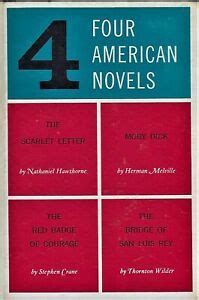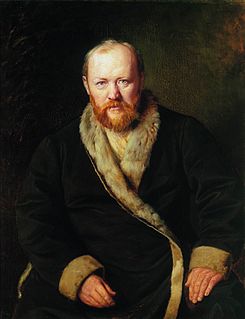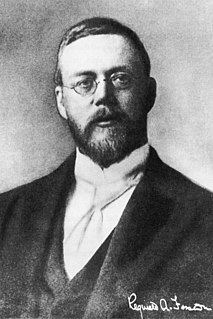A Quote by Paul Feyerabend
A scientist, an artist, a citizen is not like a child who needs papa methodology and mama rationality to give him security and direction, he can take care of himself, for he is the inventor not only of laws, theories, pictures, plays, forms of music, ways of dealing with his fellow man, institutions, but also entire world view, he is the inventor of entire forms of like.
Related Quotes
I consider myself an inventor first and an entrepreneur second. In real life, my hero is Thomas Edison. He was a great inventor, but also an outstanding entrepreneur who was able to sell his inventions to the masses. He didn't just develop the light bulb; he invented the entire electric grid and power distribution system.
The books of the great scientists are gathering dust on the shelves of learned libraries. And rightly so. The scientist addresses an infinitesimal audience of fellow composers. His message is not devoid of universality but its universality is disembodied and anonymous. While the artist's communication is linked forever with its original form, that of the scientist is modified, amplified, fused with the ideas and results of others and melts into the stream of knowledge and ideas which forms our culture. The scientist has in common with the artist only this: that he can find no better retreat from the world than his work and also no stronger link with the world than his work.
Thomas A. Edison was once reluctantly persuaded by his wife to attend one of the big social functions of the season in New York. At last the inventor managed to escape the crowd of people vying for his attention, and sat alone unnoticed in a corner. Edison kept looking at his watch with a resigned expression on his face. A friend edged near to him unnoticed and heard the inventor mutter to himself with a sigh, "If there were only a dog here!"
During the games of the Circus, he had, imprudently or designedly, performed the manumission of a slave in the presence of the consul. The moment he was reminded that he had trespassed on the jurisdiction of another magistrate, he condemned himself to pay a fine of ten pounds of gold, and embraced this public occasion of declaring to the world that he was subject, like the rest of his fellow-citizens, to the laws, and even to the forms, of the republic.
Next came the Patent laws. These began in England in 1624; and, in this country, with the adoption of our constitution. Before then [these?], any man might instantly use what another had invented; so that the inventor had no special advantage from his own invention. The patent system changed this; secured to the inventor, for a limited time, the exclusive use of his invention; and thereby added the fuel of interest to the fire of genius, in the discovery and production of new and useful things.
Every really able man, in whatever direction he works - a man of large affairs, an inventor, a statesman, an orator, a poet, a painter - if you talk sincerely with him, considers his work, however much admired, as far short of what it should be. What is this Better, this flying Ideal, but the perpetual promise of his Creator?
The inventor and the research man are confused because they both examine results of physical or chemical operations. But they are exact opposites, mirror images of one another. The research man does something and does not care [exactly] what it is that happens, he measures whatever it is. The inventor wants something to happen, but does not care how it happens or what it is that happens if it is not what he wants.
In England, an inventor is regarded almost as a crazy man, and in too many instances, invention ends in disappointment and poverty. In America, an inventor is honoured, help is forthcoming, and the exercise of ingenuity, the application of science to the work of man, is there the shortest road to wealth.
In England, an inventor is regarded almost as a crazy man, and in too many instances invention ends in disappointment and poverty. In America, an inventor is honoured, help is forthcoming, and the exercise of ingenuity, the application of science to the work of man, is there the shortest road to wealth.





































